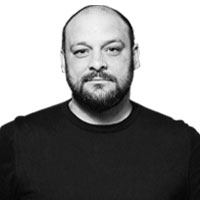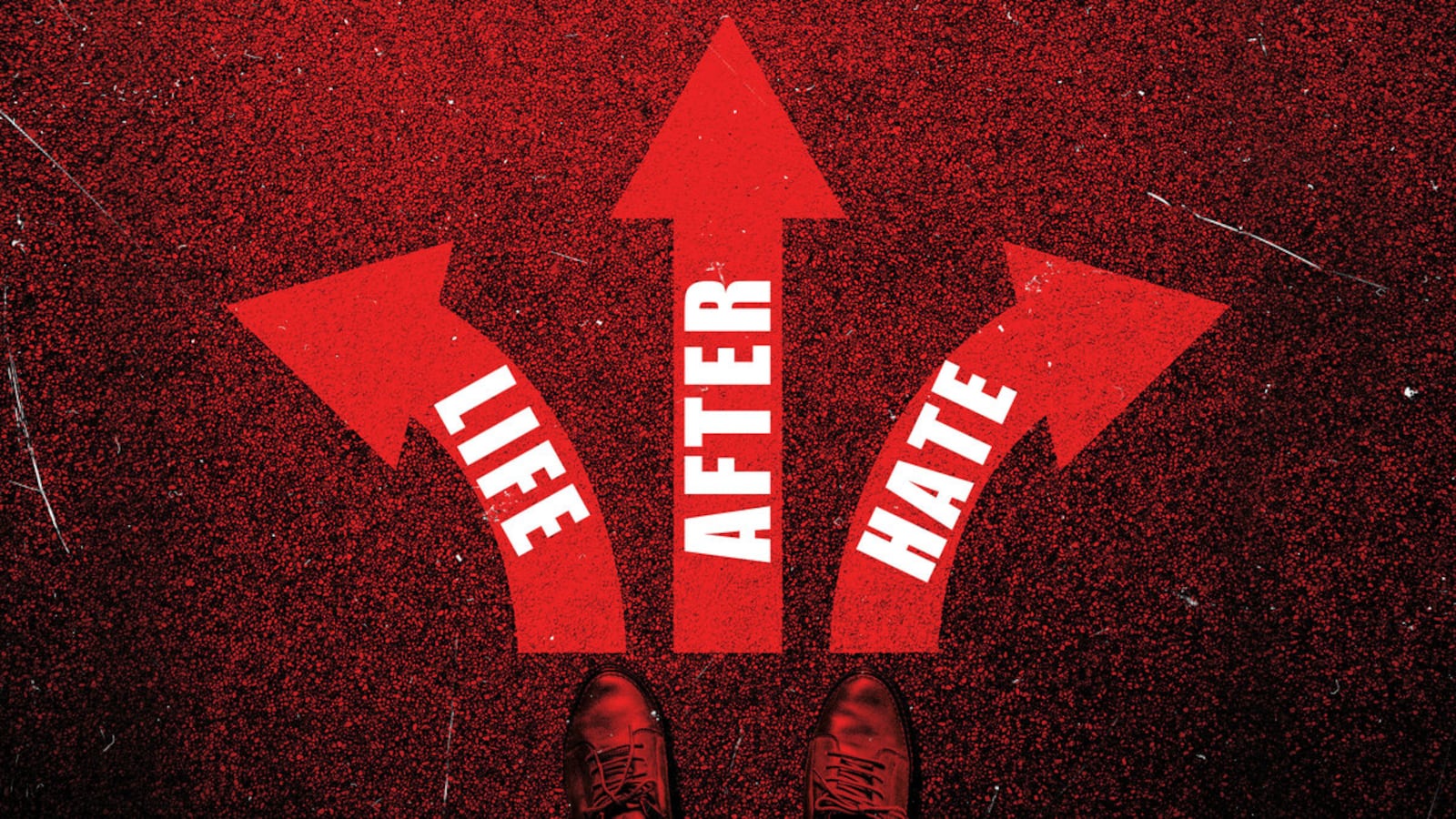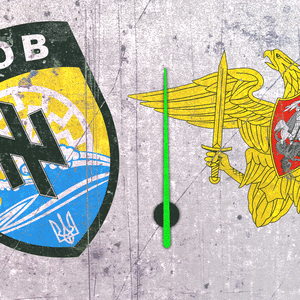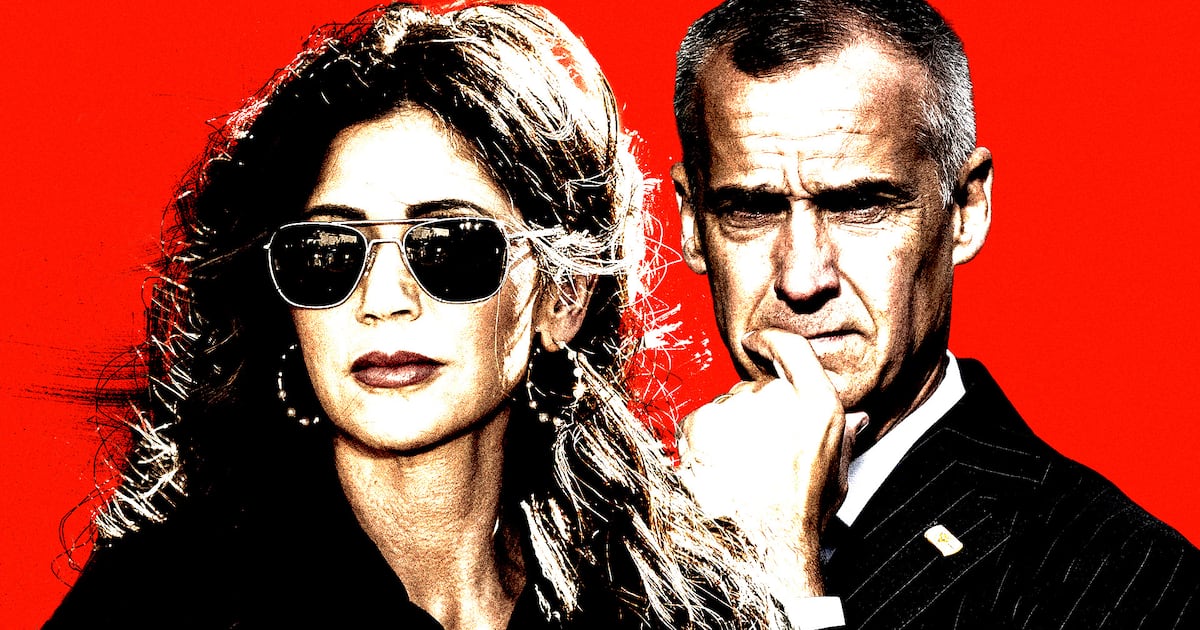All I could think to say was, "I'm sorry, Mr. Holmes.” He embraced me, and he forgave me. He encouraged me to forgive myself. He recognized that mine wasn't the story of some broken, going-nowhere kid who was going to just join a gang and go to prison. He knew that this was the story of every young person who was vulnerable, who was searching for identity, community, and purpose, and then hit a wall and was unable to find it and went down a dark path. He made me promise one thing: that I would tell my story to whoever would listen. I've been doing it ever since.
I wasn't born into hate. I had a relatively normal childhood. My parents are Italian immigrants who settled on the south side of Chicago, where they eventually opened a small beauty shop. They struggled to survive, often working seven days a week, 14 hours a day.
Quality time with my parents was pretty nonexistent. Even though I knew they loved me very much, growing up, I felt abandoned. I started to withdraw, become very angry. One day, when I was 14, I was in an alley smoking a joint and a man with a shaved head and tall black boots came up to me. He snatched the joint from my lips and said, “That's what the communists and the Jews want you to do to keep you docile.”
I'd been trading baseball cards and watching Happy Days. I didn't really know what a Jew was. But for 14 years, I'd felt marginalized. I was lost. It was as if this man in this alley had offered me a lifeline.
The man, who was America's first neo-Nazi skinhead, quickly radicalized me. I started to listen to the rhetoric and believe it. Then, I started to recruit others by making white power music. Within a few years, I became the leader of that infamous organization.
For the next eight years, I saw friends die. I saw others go to prison and inflict untold pain on countless victims and their family's lives. I heard horrific stories from young women in the movement who'd been brutally raped by the very men that they were conditioned to trust. I, myself, committed acts of violence against people solely for the color of their skin, who they loved, or the god they prayed to. I stockpiled weapons for what I thought was an upcoming race war. Twenty-five years ago, I wrote and performed racist music that found its way to the internet decades later and partially inspired a young white nationalist to walk into a sacred Charleston, South Carolina, church and senselessly massacre nine innocent people.
Then my life changed. At 19, I fell in love with a girl who was not in the movement, who didn't have a racist bone in her body. We got married and had our first son. When I held him in my arms, I began asking myself, Who am I? A neo-Nazi hate monger or a caring father and husband?
I compromised. I took myself off the streets for the benefit of my family because I was nervous that maybe I could go to jail or end up dead. I stepped back as a leader and instead I opened a record store and sold white power music.
My wife and children left me because I hadn't left the movement and disengaged quickly enough. A friend concerned about my well-being suggested I apply for a job where she worked, at IBM. I thought she was crazy. I was a closeted ex-Nazi, covered in hate tattoos. I didn't even own a computer. But I got the job.
Then I became terrified to learn that they'd be putting me back at my old high school to install their computers. This was a high school where I had been expelled twice, committed acts of violence against students, against faculty, and had gotten into fights with a Black security guard—Mr. Holmes.
When I got to the school, Mr. Holmes didn't recognize me. I didn't know what to do. I followed him to the parking lot. That’s when I apologized, and he told me to tell my story.
From 2000 to 2004, I did tell my story in some circles, but mainly I worked on myself. I held myself accountable, but I wouldn't have considered myself an activist at that point. Then on July 3, 2004, at age 31, I had my moment. My brother was killed by an African American gang member. My first thought was not hate or revenge. Instead I realized there were a lot of people of all kinds who didn’t have anyone to turn to. I wasn't doing enough to help other people who needed my help.
That's when I started doing the work that I'm doing now. I started to be more vocal about my story. I wasn't just keeping it to smaller circles anymore. I was now starting to tell the world that, number one, we have a problem that's brewing. And, number two, there's something we can do about it if we act now, and I'm doing it and it's working, so pay attention. People started to pay attention, and I think that that's what ended up formalizing it.
It started as this support network called Life after Hate that I co-founded with a friend, because what I recognized was not only that I had nobody else to talk to for help, neither did they. Even though they had left the movement years prior, they'd never really talked about their involvement with their significant others or their loved ones.
While I was doing that work with those who were no longer in the movement, people started coming to me and saying, "Hey, I'm in the movement. I need help." Taking the first step and asking for help disengaging from that movement is also a really strong step forward.
I try to make people more resilient, more self-confident, more able to have skills to compete in the marketplace so that they don't have to blame the other. The other that they've never met.
All the people I've worked with will tell you the same thing. One, they became extremists because they wanted to belong, not because of ideology or dogma. Two, what brought them out of that extremism was receiving compassion from the people they least deserved it from, when they least deserved it. I challenge everyone to go out and find someone undeserving of your compassion and give it to them. Because I guarantee you, they are the ones who need it the most.
I think activism is being personally invested in the assistance of others who might be marginalized. I think it is just making that decision to be accountable if you're complicit, to give of your privilege if you have it, if you enjoy it, and to make your voice heard, potentially at a risk to you being unpopular because of it. It’s putting yourself out there in service.
People who stand up are incredibly brave. After the Parkland shooting, you had the students that banded together and went around the world and made their voices heard and, for a while, were the only responsible people speaking about the issue in a way that people heard it. It's our failure as adults for not making the world a place where they can speak freely and safely about what they might be feeling.
It’s really hard for anyone to speak up about wrongs they see injustices. It’s especially hard for young people, right? Young people are so consumed with not standing out, trying to fit in, not being outside of the box. Certainly, there are exceptions to that. There are some people who are very independent and not afraid to show that. But I think most young people are averse to being different.
How do you advise somebody to get beyond that discomfort and when they witness something to act on it? Maybe as adults we are not having those conversations with young people we need to have, exposing our own vulnerability with them to let them know that it's OK to expose their own vulnerability with us. Otherwise, we may never have those conversations, and they'll go through life thinking they need to be perfect for us and we need to act perfect for them.
I’ve written two books, White American Youth: My Descent into America’s Most Violent Hate Movement-and How I Got Out, and Breaking Hate: Confronting the New Culture of Extremism. I also have the F*** Your Racist History podcast which explores events that don’t make it into the history books but should. I speak to groups around the world and until recently led an effort called the Free Radicals Project.
I've realized that while deradicalization is really important, there's no amount of it that is going to get us out of this mess, because radicalization occurs too fast. So I've shifted my focus to prevention. I think the only way we win this is if we prevent future generations from going down this path of hate and extremism. It’s not enough to—and I hate to use this analogy—be like a garbage man and come in when the mess has already been made and help clean it up.
Eventually, we have to get to the point where no more messes are being made. So unless I focus on prevention, I just don't see there being much of an impact in the disengagement work that I do. I call it shutting off the “bigot spigot.” We have to fix systemic and institutional racism, too. Otherwise, we will always have an environment where there will be an endless line of people for me to help disengage. So my goal is to try and stem the flow from the bigot spigot as much as possible.
Excerpted from the forthcoming book The Moment: Changemakers on Why and How They Joined the Fight for Social Justice, edited by Steve Fiffer and published by NewSouth Books.
Christian Picciolini is a former Neo-Nazi extremist turned anti-hate activist. Based in Chicago, he is also a speaker, podcaster, and author of the books White American Youth: My Descent into America’s Most Violent Hate Movement—and How I Got Out and Breaking Hate: Confronting the New Culture of Extremism.







